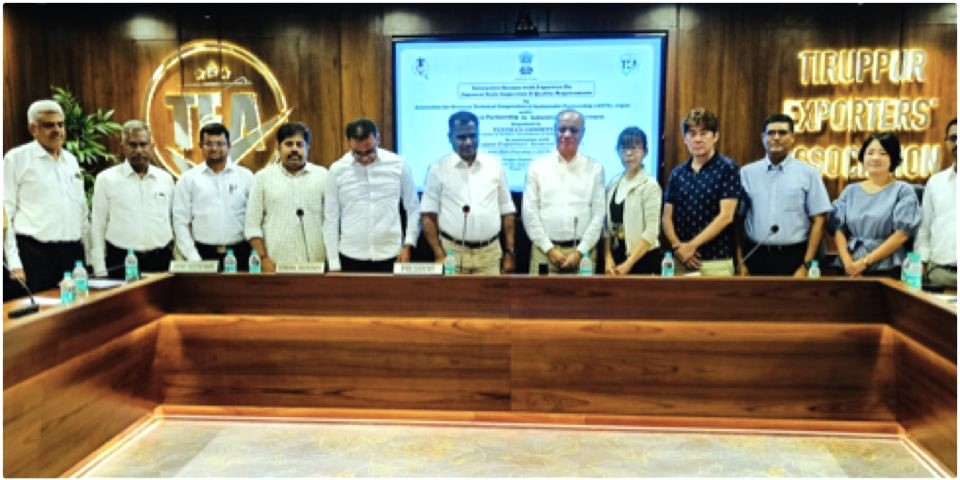
Tiruppur Aims To Improve Knit Exports To Japan With The Support Of Textiles Committee, NISSENKEN and AOTS
A seminar was held in Tiruppur this week to discuss ways to increase export
trade with Japan in knitted garments and on Japanese Style Inspection and
Quality requirements.
Director (EP & QA), Mumbai Textiles Committee J. D. Barman, in his
introductory remarks, said that all products exported to Japan have to undergo
100% third party inspection and India's export contribution to Japan was very
low due to lack of quality testing centres. He said Textiles Committee is
taking proactive measures to address this issue.
President of Tiruppur Exporters Association K.M. Subramanian welcomed
the delegates from Japan and said: “We all know how important quality testing is
in the knitting industry. I appreciate the fellow exporters who are already
exporting to Japan under very stringent quality control norms. All products
exported to Japan must undergo 100% third-party inspection at the common
facility. India's share in Japanese textile imports is very low (1%). AOTS and
NISSENKEN have been selected by the Government of Japan to explore the
possibility of increasing India's market share in Japanese imports. I thank the
Textiles Committee for taking the initiative to establish a common platform for
third-party inspection of garments proposed to be exported to Japan by entering
into an MoU with NISSENKEN.”
He added that this session on "Japanese style of inspection and
quality requirements" would help in clearing many doubts in the minds of
exporters and help them in future inspections.
Kumar Duraiswamy Joint Secretary of Tiruppur Exporters Association
elaborated on the activities undertaken by the association under the principle
of sustainable production, such as zero liquid discharge (ZLD), carbon neutral,
non-conventional power generation, tree plantation, desilting of ponds and
providing facilities to Government schools by adopting them.
Karthikeyan Natarajan from PQC India Pvt. Ltd., which specialises in
third party inspection for Japanese exports, spoke at length about third party
inspection techniques, the readymade garment market in Japan and the business
culture of the Japanese.
Business Development Manager, of NISSENKEN, Junji Iwata said that
Bangladesh's exports to Japan have increased manifold in a short span of time,
while India's exports were very low. He said that there is a huge potential in
Japan for Tirupur exporters. Senior Member of the Association and Member of the
Advisory Committee, Mico Velusamy and Executive Committee Member K. Mezhiselvan
shared their experiences in the Japanese market.
All products exported to Japan have to undergo 100% third party inspection and India's apparel export contribution to Japan is still low due to lack of quality testing centres. Textiles Committee is taking proactive measures to address this issue in association with AOTS and NISSENKEN of Japan. We are looking forward to work closely with TEA to facilitate the quality testing centres to enhance trade with Japan – JD Barman, Director (EP & QA), Textiles Committee.
If you wish to Subscribe to Textile Excellence Print Edition, kindly fill in the below form and we shall get back to you with details.












